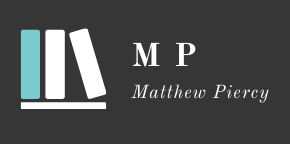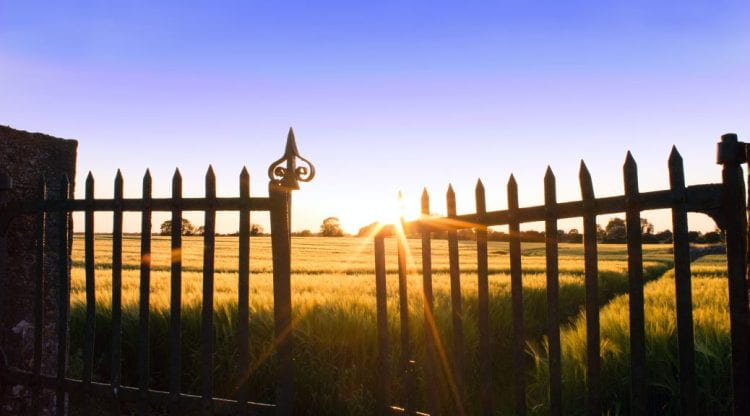My final article of last year was a contemplation of the need for a radical shift in education, advocating for a departure from traditional structures. One focused on responsibility and an optimistic mindset. Without focused intention, I seemingly then followed up by writing about the underpinning importance of spirit and the value of authenticity. At midnight tonight, we will welcome 2024 and I am curious what the year ahead holds in store. My best guess? An increasing awareness and an availing of oneself in an age where gatekeeping no longer has a place. The word “gatekeeper” may just be the quintessence of 2024.
The Continual Changing Landscape of Education
The past week on several occasions the word “gatekeeper” surfaced. It is highly sensical too when we consider how anyone is now able to self-publish. Consider the ubiquity of not only social media but how an individual can reach over 160 million people/followers on a platform like TikTok. Or, how Tik Tok now has over 1 billion subscribers! Further, consider the rise of the rise of Artificial Intelligence (AI), and how it continues to revolutionize content creation. Not only is it faster and more efficient, but it also is becoming more accurate. The point is, if you have something to share, you not only have an audience but are free to share.
Essentially, gatekeeping is defined as the practice in which a hierarchy of power holds power and can limit access. My initial understanding of how the world was changing in a very practical sense occurred as I traipsed the world back in 2011. Irrespective of location, be it in the Atlas Mountains of Morocco or the Amazonian River Basin of Ecuador the response to, “How did you learn English?” was always the same. “English” could be substituted for beekeeping, dancing, cooking, or any other skill, and yet the response was always…
“YouTube.”
Long gone are the days when an institution, course, or teacher is necessary. Nor is the cost of learning a deterrent. An internet connection and time are all that are required. Individuals with the will to learn something, anything, have been doing it for more than a decade. This second millennium allows us the opportunity to move through time and space differently. Access, not gatekeeping is where we are now. And access even to what is considered “the best.” For example, Yale no is longer limited to just Yale students. “In recent years, Yale has expanded its offering, including the online Coursera classes which are estimated to have over one-and-a-half million students in 2023.” Specific to education, the term gatekeeping is about controlling the rate at which students progress to more advanced levels of study in the academic setting. Thankfully, learning as we know it, is no longer limited to institutional settings. Not only can we learn anything, from anyone, anywhere, and at any time, but we are also free to progress at the most fitting rate.
Technology’s Influence Unveils a World of Choice
One might go so far as to say there is a “movement” underway. One rooted in choices. Just consider how we continue to see an upswell in such choices as this abbreviated list:
- Online Learning Platforms: Platforms like Coursera, Udemy, and Khan Academy
- Micro-Credentials and Badges
- Homeschooling and Unschooling
- MOOCs (Massive Open Online Courses
- Gamified Learning
*Note: Udemy alone registered 870 million course enrollments as of June 2023
Inherent in each is the removal of the traditional gatekeeper. Such choices have however elicited a question concerning credentials and their verification. James Mattiace expounds in The Global Credentialing Landscape: Messy, Massive and Meaningful, “The world is getting more complex. Different countries are adapting their educational and professional certification programs and there is a proliferation of fraudulent credentials, which will likely get worse before it gets better as we enter an increasingly AI-infused world.” Whatever the case, we need not be reminded that there continues to be great value in access to non-traditional, credit and non-credit learning experiences continues to increase.
Education’s Real-World Power
It might serve us to follow the mindset of influential worldwide leader, Jeff Bezos. On more than one occasion he shared, “I have learned to use the word ‘impossible’ with great caution.” 2024 is about possibility. Not only are all things possible, but quite probable. A look at the “real world” tells us so. As part of my formal training as an educator we were assigned to read Paulo Freire’s “Pedagogy of the Oppressed.” Though the book had a profound impact on me, it was minimal in comparison to what I learned from my practicums and working in a diversity of settings. Settings that were very different from the theoretical university classroom or that which I had experienced growing up. Over the course of a year, I would experience four 3-month rotations in settings where I would be with children growing up oppressed. In schools where students were the sons and daughters of seasonal migrant workers, in schools where 100% of the students received free lunch (and often breakfast too!), and also in schools where I would support severely and differently-abled students who were mainstreamed. This was the “real world”. The best teacher would be the setting and the children, in accordance with what Freire believed education to be. An education that he quoted as “freedom.” Not the formal school curriculum which he distrusted. This quote, “Education is freedom” is as timeless as it applies to today. A learning which supersedes the heads and hearts of academics, but is more about the hands and feet on the ground. It is about doing the work now. A clear realization and also trust that all that is needed already exists. Pivotal in this is the reality of humanity’s resilience. To attempt to hold this back, or in other words “gatekeep” is misguided.
Answers Not in Dollars but in “Sense”
“You hear that Mr. Anderson?” is a memorable line from The Matrix that many readers might remember. The query comes as Agent Smith holds Neo’s (Mr. Anderson) hand on the train track. The sound of the train thunders towards them. “That is the sound of inevitability!” threatens Smith. Yet, Neo defies the odds and does not succumb to death. His strength is akin to what is held in store for today’s youth. Africa’s youth but one possessor of the palpability of power, wisdom, and resilience. Such spirit can be seen in Ugandan children’s dancing. The video is not meant to be tokenism nor reductionist but simply showcase the electrified sense of vibrancy, life, and possibility. The children soon will be part of Africa’s working force. I hope that the remnants of colonialism will not act as gatekeepers.
By the late 2030s, sub-Saharan Africa’s working-age population will reach 1 billion. Though India overtook China this past year, both with nearly one and a half billion people, sub-Saharan Africa’s population will soon outrank both. What might this mean? Hopefully a compelling sense of urgency to invest educationally. And yet, how this might look, might require a bit more imagination or possibly radical simplification. A desire to color outside the lines, and not necessarily abide by unsustainable practices traditionally attempting to place band-aids on gaping wounds. Instead, how might we create choices within communities? Tap into the expertise and wisdom of elders. The answers are not in dollars but in sense. The sense of inside out and not outside in. An understanding that everything needed already exists.
Might 2024 not only be a decline in gatekeeping but also a greater realization the world over, of our greatness. The Master Persian Poet Rumi said it best:
“You were born with greatness. You were born with wings. You are not meant for crawling, so don’t. You have wings. Learn to use them and fly.”
So, let us soar into 2024.
###############################

